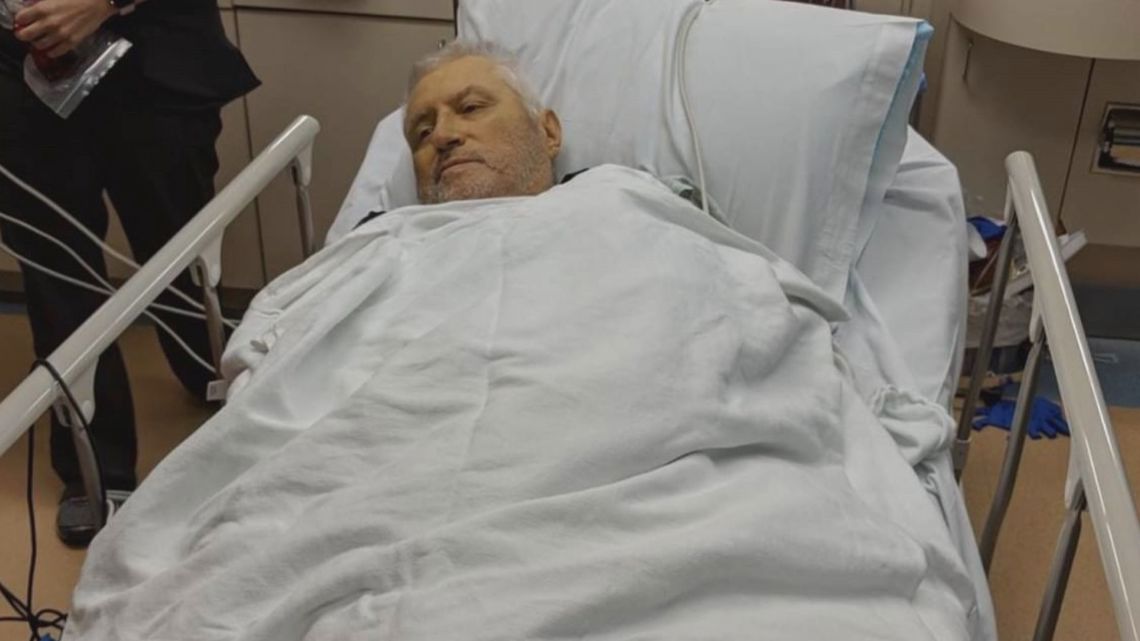
71-year-old Stanley Swietek, who received a liver and kidney transplant at the same time, said he’s thankful for a second chance.
GRAND RAPIDS, Mich. — After surviving a double organ transplant, one West Michigan man is hoping others will learn from his mistakes and make heathier choices.
“Just laying in bed and all of sudden it felt like something was in my abdomen/belly and just wanted out of there and it was like, ‘Get me out now.’”
It was the middle of the night back in the summer of 2018.
71-year-old Stanley Swietek described the moment he woke up in pain.
“I’m going holy mackerel, what in the world is this? It’s three in the morning.”
He called an ambulance and told 13 ON YOUR SIDE doctors told him it’s “Not looking good. You’d better make some arrangements. They says, ‘you just drank way too much,’ and I said, ‘yeah, I did.’”
Swietek did not at all hide his past with alcohol.
“Oh gee, I drank since I was a kid. When we were kids, 10 years old, working in a bar situation with mom and dad we were tapping kegs of beer and drinking the beer,” he said. “You had to slam this rod through the old cork, and it would spray all over. So, we started drinking draft beer when we were little kids.”
He was born and raised in Muskegon. Today, he lives in Baldwin.
“That’s what they did, back in those days,” said Swietek.
Decades later, his drinking would lead to cirrhosis of the liver.
Shannon Todd is a physician assistant with the Henry Ford Transplant Institute in Grand Rapids. She told 13 ON YOUR SIDE, “Many patients with cirrhosis of the liver – it can be a rather silent disease because cirrhosis is a fancy name for scar tissue of the liver.”
Initial symptoms could be feeling cold or tired all the time. Other symptoms could mean the issue is more serious.
“If you’re starting to see your skin tone change, if you’re seeing your eyes start to yellow, or your urine turn brown those are all symptoms that there might be an issue with your liver,” said Todd.
Swietek said, “It’s not fun. It’s not a fun death.”
After a strict list of instructions, “They’d tell me, ‘you gotta stop drinking for six months. If you’re alive after six months, we’ll put you on the list,’” said Swietek. “I ain’t had a drop since July first of ’18, not even mouthwash with alcohol.”
Stan made it on the list to receive an organ donation several months later. By the time a liver would become available, he would need a kidney too.
“Often, the liver and the kidneys will fail at the same time,” said Todd.
The donor, a woman in her 50s from East Lansing, died from a massive stroke.
“God took an angel home to keep me here,” said Swietek, wearing a t-shirt as testimony which says, “I am a walking, talking miracle.”
He added, “You can lose a lot of things with a drinking life. You can lose family, lose friends, you can lose your life.”
He’s thankful for a second chance and hoping others don’t need one.
“I’m so happy to be here and alive and to tell people you don’t want to die,” said Swietek.
Todd with Henry Ford Health said it’s recommended that men have no more than three alcoholic drinks per day. No more than two drinks per day for women.
She also said if you’re already dealing with health issues affecting your liver like diabetes, high blood pressure, high cholesterol or even abdominal fat it won’t take much extra alcohol to lead to cirrhosis of the liver.
